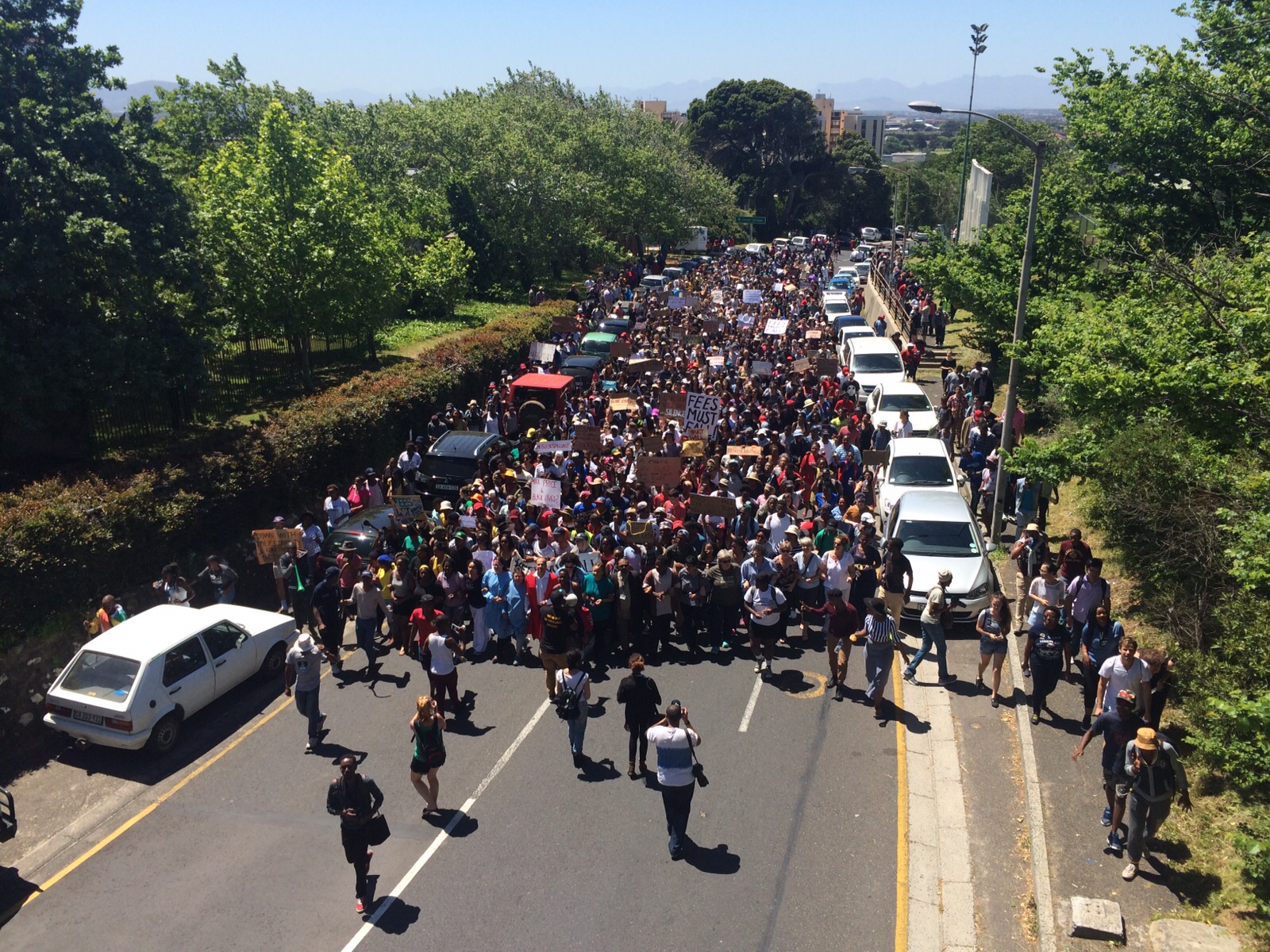While the South African government has place a moratorium on fee increases at tertiary education institutions for next year, financially strapped students feel this is not enough. South Africa is still reeling after one of its largest nationwide student protests last week which completely shut down university campuses at its most critical period. The #feesmustfall protests made headlines across the country as students from Wits University, University of Cape Town, University of the Western Cape and the Cape Peninsula University of Technology took to the streets to make their voices heard on the proposed fee increases for 2016.
But although students achieved a minor success with President Jacob Zuma on Friday announcing that no fees will be hiked next year, the high cost of tertiary fees is a huge setback for students who have a willingness to success in their academic studies, but simply cannot cough up the money.
According to a member of the Muslim Students Association of UCT, Yaseen Hassim, a basic Bcom degree is at least, R50 000 for a year and for a more complex subject, such as Science or Medicine, you would be paying at least R70 000 a year.
“That’s why the students are demanding that the fees “must fall” and not just the increase,” says Hassim.
“Education needs to be affordable to everyone.”
The students were fighting not only for a 0% increase in the fees but for education to be free in general. There was also a call to end outsourcing and to increase the NSFAS bursaries.
“The fees should be subsidized to a point that not only the rich students can afford it,” said Hassim.
According to Hassim, these protests have been long overdue.
“It is time for the students to take a stand and voice their concerns. The students are fighting for a good cause.”
However, because the protests started roughly a week before final exams, students were faced with a dilemma, where they had to choose between staying at home to study and going out to protest. Most of them chose to make the sacrifice to protest during the day and study at night.
“The revolution will not be live televised but live tweeted,” says Hassim. “What the mainstream media were portraying was a one sided view whereas the live tweets from the students were the actual views of the students. Social media played a massive role in this revolution.”
The entire series of protests was dominated by violence where some students were found to be provoking police by throwing stones. And although this was only a few hundred out of 10 000 protestors, they diminished the image of the entire protest, added Hassim.
“Those who truly stand for the cause knows that violence will not solve anything.”
Saaroh Jacobs, a student at UWC, has been paying her own fees for four years. Because her family only has one source of income and is currently struggling to afford daily living expenses as is, she has to work multiple jobs to pay back her study loans.
“I haven’t graduated yet but I already have debt to my name, and student loans to pay back,” exclaims Jacobs.
“And although UWC fees are not as high as UCT or Stellenbosch, it is still a lot of money which most students are struggling to afford.”
Many mainstream media outlets reported that a fire was caused by the students of UWC; however it was confirmed by the SRC of UWC as well as students from CPUT, that a group of rebel students vandalized CPUT and then went to UWC to cause this damage.
The protest to Parliament started out peacefully but once the gates to Parliament were open, many of the students went inside. When the stun grenades went off, it was immediately understood that the police were trying to get the students off the premises, but once they were out, it was alleged that the police were trying to attack them.
“What was really horrific was that the police shot the stun grenades directly in the faces of the students,” says Mohammad Shaheed Karriem, the chairman of the MSA of UCT.
“Even once everyone was out of Parliament, they continued to shoot rubber bullets. There was no purpose for this because we were unarmed.”
The mainstream media portrayed the students as ‘hooligans’ whereas it was the police who provoked the students and caused them to retaliate in resistance, says Karriem.
“The 0% increase was a forced move from the government to try and calm things down,” Karriem asserted.
“The problem is far deeper than the increase of the fees because students already can’t afford the fees as it is.”
“Although it was a relief to hear that there is a 0% increase in University fees next year, it is still a struggle to pay the current amount,” says Tashreeq Lasker, a student at CPUT.
Lasker adds that after the extreme vandalism at his campus, it is going to be very hard to study and write exams in that environment. Lasker also reflected on the promises of a better life at the birth of democracy in SA which echoed through the country, which according to him, have not yet been met.
“We were promised in 1994 that there was going to be free education for all.”
Students agree that the greatest thing about protesting was the unity and camaraderie amongst them.
“The 0% increase was a huge victory for the students and it shows us that our voice is much stronger than we anticipated,” says another student, who asked to remain anonymous.
“The will of the students will always yield results.” VOC (Amina Waggie)






 WhatsApp us
WhatsApp us 

